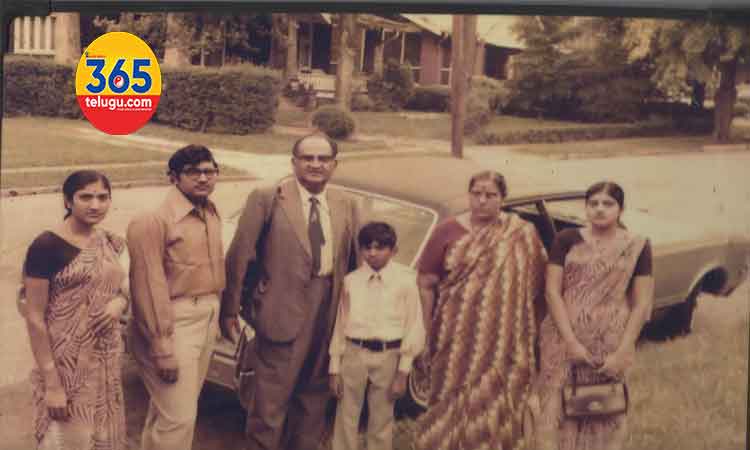365telugu.com online news,Hyderabad,july 18th,2025: As the film fraternity and fans continue to celebrate the enduring legacy of Samarla Venkata Ranga Rao, fondly known as S.V. Ranga Rao (SVR), insights from his nephew, Uday, in a recent special interview, shed further light on the personal and professional life of this cinematic titan. Often hailed as “Viswa Nata Chakravarthi” (Emperor of Acting Universe), SVR’s influence on Indian cinema remains profound decades after his passing on July 18, 1974.
A Glimpse into His Personal Life:
Born on July 3, 1918, in Nuziveedu, Andhra Pradesh, S.V. Ranga Rao’s journey began far from the silver screen. Educated with a Bachelor of Science degree, he initially pursued careers as a fire officer and later as a budget assistant with Tata company. His nephew, Uday, revealed a touching personal detail: SVR and his wife raised Uday from a tender age, fostering a deep familial bond.

Despite his towering on-screen presence, at home, SVR was a devoted family man, cherishing time with his two daughters (who reside in the US) and his late son. A man of diverse interests, he enjoyed poetry, short story writing, cricket, painting, hunting, and even had a flair for cooking, particularly chicken dishes.
Uday recounted that SVR lived “like a king” and did not encounter significant hardships in his life. A little-known fact shared by his nephew is that SVR was the first Telugu actor to be a brand ambassador, notably for Berkeley cigarettes.
An Unparalleled Filmography and Iconic Roles:
SVR’s acting career spanned nearly three decades, encompassing over 160 films across five languages, predominantly Telugu and Tamil. His unmatched versatility allowed him to embody a vast array of characters, making each unforgettable:
Mythological Grandeur: He breathed life into legendary figures such as the jovial yet formidable Ghatotkacha in ‘Mayabazar’ (1957), the arrogant Keechaka in ‘Nartanasala’ (1963), the tyrannical Hiranyakashipu in ‘Bhakta Prahlada’ (1967), and the mighty Ravana in ‘Sampoorna Ramayanamu’ (1971).
Historical Figures: His powerful portrayal of Duryodhana in ‘Pandava Vanavasamu’ (1965) and Tandra Paparayudu in ‘Bobbili Yuddham’ (1964) are etched in cinematic memory.

Diverse Social Roles: From complex patriarchs in ‘Bandhavyalu’ and ‘Aatma Bandhuvu’ to a daily wage laborer in ‘Thatha Manavadu’ and even comedic turns in films like ‘Missamma’, SVR proved his mettle across genres.
Villainous Charisma: His portrayal of the cunning Nepala Mantrikudu in ‘Pathala Bhairavi’ (1951) was a pivotal role that cemented his status as a star.
Awards, Achievements, and a Dream:
S.V. Ranga Rao’s brilliance was recognized with numerous accolades, both national and international:
International Recognition: He made history by becoming the first Indian actor to win an international award – the Best Actor Award at the 3rd Afro-Asian Film Festival in Jakarta in 1963, for his performance as Keechaka in ‘Nartanasala’.
Read This also…Reliance Retail Acquires Kelvinator, Strengthening Its Position in India’s Consumer Durables Market..
National and State Honors: He received multiple Rashtrapati Awards, Filmfare Awards South (including for ‘Nartanasala’ and a Special Award for ‘Naanum Oru Penn’), and Nandi Awards. Notably, his directorial ventures, ‘Chadarangam’ (Silver Nandi) and ‘Bandhavyalu’ (Golden Nandi), also earned top honors.
Posthumous Recognition: The Government of Andhra Pradesh instituted the “S. V. Ranga Rao Award for Best Character Actor” in his memory, a testament to his lasting impact.

A poignant revelation from his nephew was SVR’s profound desire to win an Oscar, a testament to his ambition and pursuit of excellence on a global stage. The awards he received are meticulously preserved by his grandson in Eluru.
His Distinctive Approach to Acting and Directing:
SVR is celebrated as one of India’s earliest “method actors,” known for his natural and immersive performances. He didn’t just play characters; he became them. His deep, resonant voice, impeccable diction, and commanding screen presence allowed him to dominate scenes even alongside other cinematic giants. Whether it was a booming dialogue or a silent expression, he delivered with a gravitas that captivated audiences. This dedication extended to his directorial efforts, where he proved his mettle with critically acclaimed films.
S.V. Ranga Rao’s untimely demise at the age of 56 due to a heart attack on July 18, 1974, left a void in Indian cinema. However, his rich filmography and the indelible mark he left on the art of acting ensure that his legacy as “Viswa Nata Chakravarthi” continues to inspire generations.

